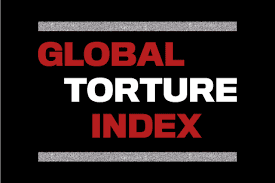
A recent report by a global alliance of anti-torture organisations has classified India as a “high risk” country in the Global Torture Index, citing frequent incidents of severe beatings, forced confessions, and custodial deaths, particularly targeting marginalised communities, due to India’s political and institutional framework, which significantly contributes to the ongoing torture crisis.
The Global Torture Index, developed by the World Organisation Against Torture (OMCT), released on Thursday (June 26) assesses the risk of torture and other ill-treatment worldwide using seven thematic pillars, including, political commitment against torture, ending police brutality and institutional violence, freedom from torture in detention, ending impunity, victims’ rights, protection for all, and the right to defend and civic space.
The index highlights the routine misuse of laws like the UAPA by agencies such as the NIA and CBI, the use of unofficial detention sites, chronic prison overcrowding, and widespread discrimination, especially against marginalised groups and human rights defenders, while also criticising the National Human Rights Commission for failing to address these abuses.
The report highlights that in 2024, the National Human Rights Commission (NHRC) recorded 2,739 custodial deaths, following approximately 2,400 such deaths in 2023. In 2022, 1,995 prisoners reportedly died in judicial custody, including 159 unnatural deaths. Since 2018, at least 61 human rights defenders have been detained under the UAPA, including in high-profile cases such as that of Professor G.N. Saibaba, who was imprisoned despite having a severe disability and later died in custody, and journalist Siddique Kappan, who was held for two years for investigating caste-based violence.
The report further underscores that the rights of victims of torture and ill-treatment remain severely restricted, as India lacks a comprehensive law defining victims of torture, leaving most survivors without meaningful redress or rehabilitation.
They observed that existing complaint mechanisms are described as ineffective and often result in reprisals against those who come forward. Although the NHRC is in place, and criticised it for lacking sufficient independence and failing to adequately address the needs of victims.
“India demonstrates insufficient political commitment to effectively preventing torture and other cruel, inhuman or degrading treatment or punishment (CIDTP),” alleged the report.
This story was originally published in maktoobmedia.com. Read the full story here.

